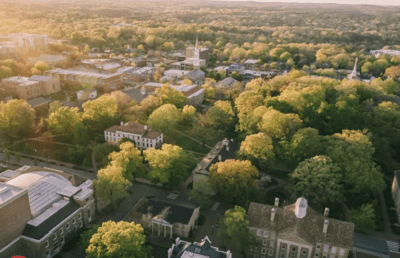I turned 40 last year, and I’ve reached a moment where I’m looking back at my activist history and thinking about my activist future. Among other things, that involves looking back at the frustrations of college town activism. And since I’ve spent the last 6 years as a member of Democratic Socialists of America, that means the frustrations of organizing with a socialist group in a progressive college town.
The landscape in our progressive college town features lots and lots of community activist groups. What frustrations could there be here? In a town full of progressive activist groups with goals broadly compatible to those of DSA, especially in the short term?
Oh, a few…
Class Politics in a College Town
It’s hardly the first time I’ve written about the oddities of college town activism and politics. See the other posts here, here, here, here, and here. But it’s worth thinking about in a systematic way. After turning 40, I feel like I’m at a transition point in my political and activist work.
Trying to boil down the challenge to one key point leaves me thinking about Iowa City’s mix of political tendencies, interest groups, and class politics.
We have dozens of different activist groups. But they’re balkanized by identity, issue, religion, immigrant status, and so on. We have groups that approach things from a standard non-profit framework, from a loose petty bourgeois framework, an informal anarchist framework, an Alinskyist community activist framework, and so on.
Drop all this into a college town with a median age under 30 where people come and go every few years and it gets messy. It gets uncoordinated.
In addition to these issues, Iowa City boasts a relatively small and disorganized working class population. It all results in an environment where it’s incredibly difficult to build working class politics of the sort a group like DSA seeks to build.
And then we stir all this into Iowa City’s liberal bubble politics. For example, our political candidates label ‘socialism’ too spicy. At the time time they openly embrace the ‘abolitionist’ label.
In just about any other city in the U.S., socialism is far more popular than prison and police abolitionism. And so, Iowa City offers a political environment that’s both ultra-progressive and anti-socialist.
It’s a struggle.
We end up with a series of alliances between capital and political progressives. These alliances govern places like Iowa City. Replacing those alliances with leftist, working class politics is a huge challenge.
Reflection
Despite the struggles, Iowa City DSA has worked reasonably well. It has survived nearly 7 years, which is an eternity in Iowa City’s (arguably toxic) activist scene. To be honest, I doubt it will be able to continue much longer. But it has held together reasonably well and done some good.
DSA works as a member-based group. Only members can vote. And it seeks to direct political energy toward democratic decision making and class formation rather than expressing one’s feelings.
All these things are rare for Iowa City. None of these things are native or intelligible to the Iowa City activist scene. That creates tension. And, I have to admit, I’m tired of navigating that tension.
I’m not saying that I’m ‘retiring’ from activism. I don’t have quite that big a sense of finality for it. But I’ve hit a certain moment where it’s time to rethink my place in Iowa City movements.
